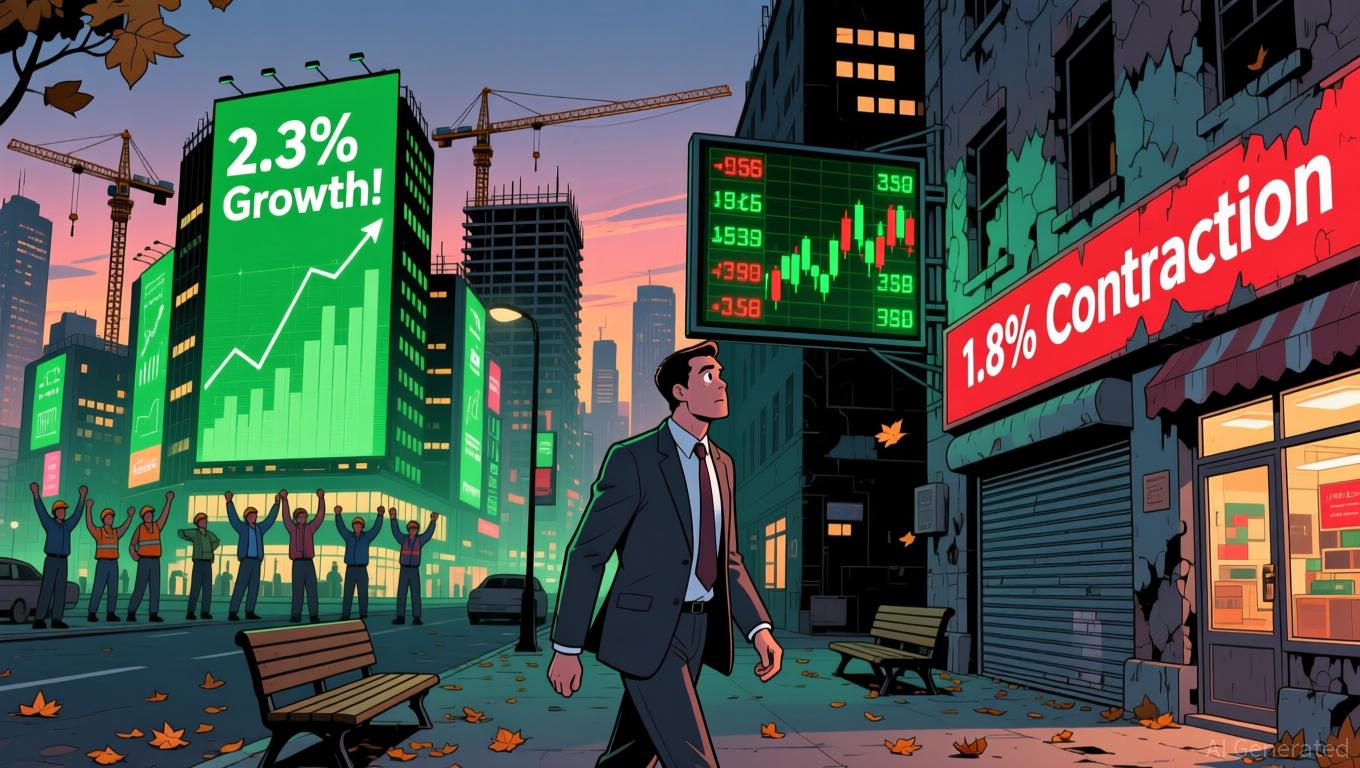‘Something’s Got To Give’: Equities and Fixed-Income Markets Present Polar Opposite Outlooks on the US Economy, Says Goldman Sachs Trader
Investors in the equities and fixed-income markets appear to have polar opposite outlooks on the US economy, according to one Goldman Sachs managing director.
Shawn Tuteja, who oversees exchange-traded fund (ETF) and custom baskets volatility trading in Goldman’s Global Banking & Markets division, notes in a new analysis that there are “growing fears” the US economy is headed for a slowdown.
Tuteja says the significant drop in bond yields suggests fixed-income investors expect numerous additional rate cuts from the U.S. Federal Reserve.
“For equities, it’s a different story. The S&P 500 continues to hit record highs. And in fact, it’s the most economically sensitive, low-quality and most speculative names that have led the last leg higher. In other words, equity investors think we’re going to thread the needle; that the Federal Reserve is going to continue to cut interest rates into an economy that is not only stronger than recent jobs data might suggest, but that actually might reaccelerate into 2026 due to fiscal stimulus from the government.
The fixed-income market is much more worried about a potential collapse in the employment data. So something’s got to give. Going forward, economic data releases will be really important, and markets could be extremely reactive to them, since each print helps shed light as to whether the equity market or the fixed income market is on the right side of this disconnect.”
Generated Image: DALLE-3
Disclaimer: The content of this article solely reflects the author's opinion and does not represent the platform in any capacity. This article is not intended to serve as a reference for making investment decisions.
You may also like
Dash Coin Value Climbs 4.86% Amid Strategic Growth and Positive Analyst Revisions
- DASH surged 4.86% in 24 hours, driven by strategic expansions and upgraded analyst sentiment. - Partnerships with Coco Robotics and Old Navy expanded delivery services and diversified revenue streams. - Q3 2025 results showed 49.2% gross margin and 0.34 debt/equity ratio, supporting bullish analyst price targets up to $260. - Technical analysis identified $208 breakout and $200 support levels, aligning with positive backtest results showing 28% average gains post-earnings.
Internet Computer (ICP) Experiences a Surge: What Factors Are Fueling the Latest Uptrend?
- Internet Computer (ICP) surged in late 2025 due to blockchain infrastructure upgrades and rising DeFi adoption. - Key innovations like Fission, Protium, and Chain Fusion enhanced scalability, interoperability, and cross-chain integration with Bitcoin , Ethereum , and Solana . - AI-powered Caffeine platform boosted TVL by 22.5% and drove 1.2M active wallets, supported by partnerships with Microsoft and Google Cloud. - Despite record $1.14B trading volume, ICP faces challenges in closing its TVL gap with E

Bitcoin Updates Today: Cardone Blends Real Estate and Bitcoin in a Strategic Move to Navigate Market Fluctuations
- Cardone Capital increased Bitcoin holdings to 888 coins while acquiring a $235M Florida multifamily property. - The hybrid strategy combines real estate stability with crypto growth, reinvesting $10M annual property income into Bitcoin. - Grant Cardone emphasized using real estate profits to hedge volatility, with 935 new Bitcoin purchases funded by cash flows. - Institutional Bitcoin adoption grows as Harvard allocates $443M to crypto ETFs, mirroring Cardone's diversified approach. - The model contrasts

Global trade barriers and increasing expenses lead to Japan's initial economic downturn after six consecutive quarters of growth
- Japan's Q3 2025 economy contracted 1.8% annually, first decline in six quarters, driven by 0.4% GDP drop and weak private consumption amid global trade tensions and domestic cost pressures. - Nexon Co. defied downturn with ¥118.7B revenue and 61% growth in MapleStory, showcasing digital innovation's resilience despite broader economic headwinds. - BOJ faces balancing act as growth wanes, with U.S. tariffs and rising energy/food costs constraining domestic demand while capital spending remains supported b

